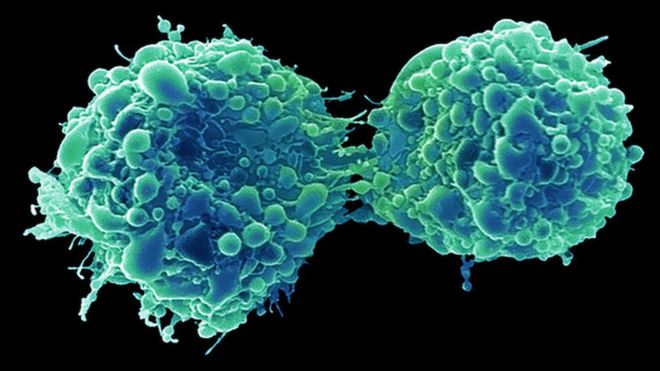A strain of the common cold virus can infect and kill bladder cancer cells, a small study suggests.
All signs of the disease disappeared in one patient, and in 14 others there was evidence that cancer cells had died.
University of Surrey researchers said the virus could “help revolutionise treatment” for the cancer and reduce the risk of it recurring, according to BBC.
A bladder cancer charity called the study “very exciting” if larger studies confirmed the findings.
Non-muscle invasive bladder is the 10th most common cancer in the UK, with around 10,000 new cases each year.
Current treatments for this type of bladder cancer are invasive or can cause serious, toxic side effects.
And constant, costly monitoring is needed to check that the cancer has not returned after treatment.
In this study, 15 patients with the disease were given the cancer-killing coxsackievirus (CVA21) through a catheter one week before surgery to remove their tumours.
When tissues samples were analysed after surgery, there were signs the virus had targeted and killed cancer cells in the bladder.
Once these cells had died, the virus had then reproduced and infected other cancerous cells – but all other healthy cells were left intact.
What the virus does is special, says study leader Prof Hardev Pandha, from the University of Surrey and Royal Surrey County Hospital.
“The virus gets inside cancer cells and kills them by triggering an immune protein – and that leads to signalling of other immune cells to come and join the party,” he said.
Normally, the tumours in the bladder are “cold” because they do not have immune cells to fight off the cancer.
But the actions of the virus turn them “hot”, making the body’s immune system react.
Prof Pandha said the same virus had also been tested on skin cancer, but this was the first time it had been studied in a clinical trial on bladder cancer.
“Reduction of tumour burden and increased cancer cell death was observed in all patients, and removed all trace of the disease in one patient following just one week of treatment, showing its potential effectiveness,” he said.
“Notably, no significant side effects were observed in any patient.”
H.Z

